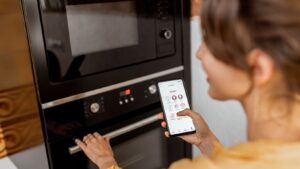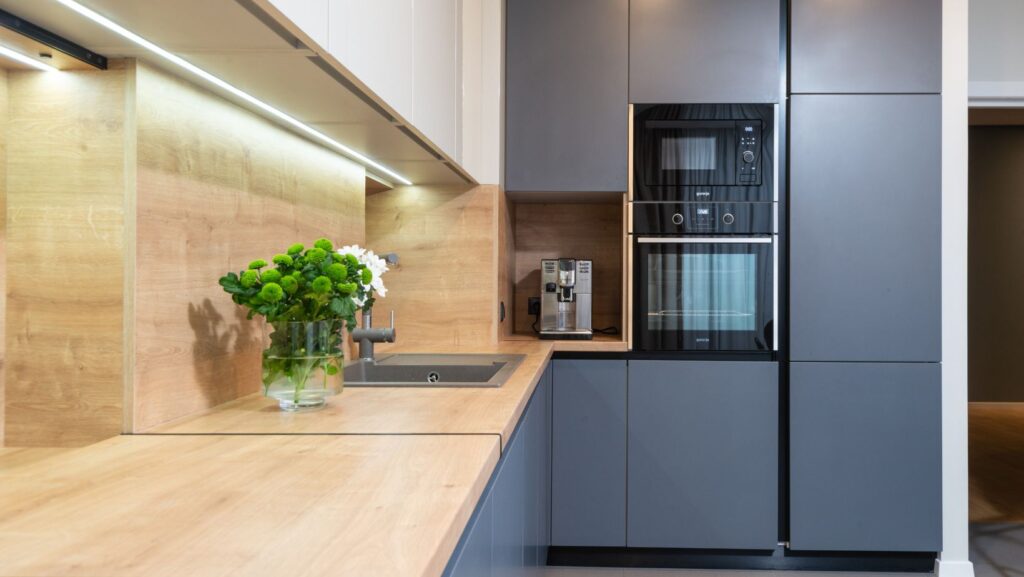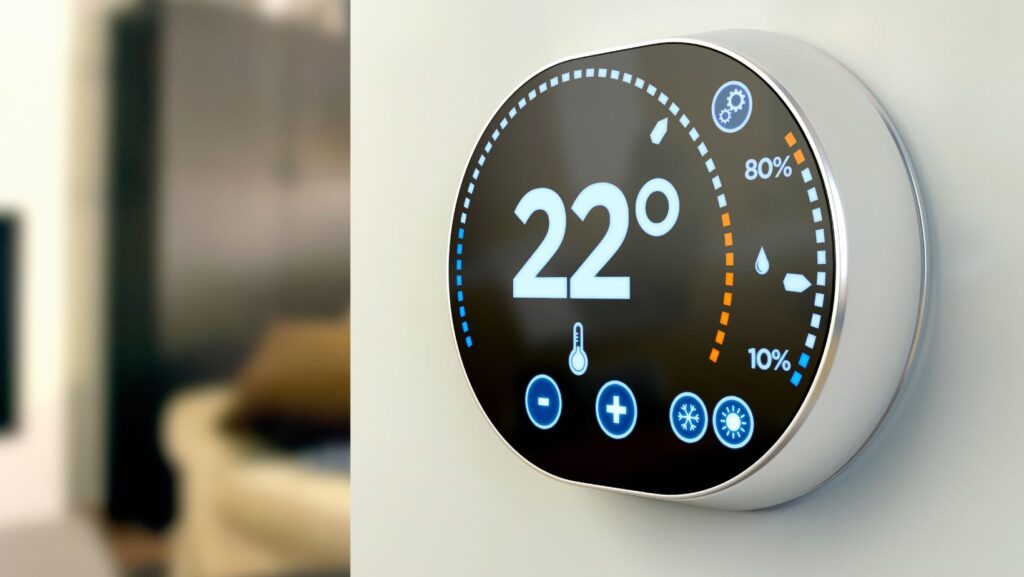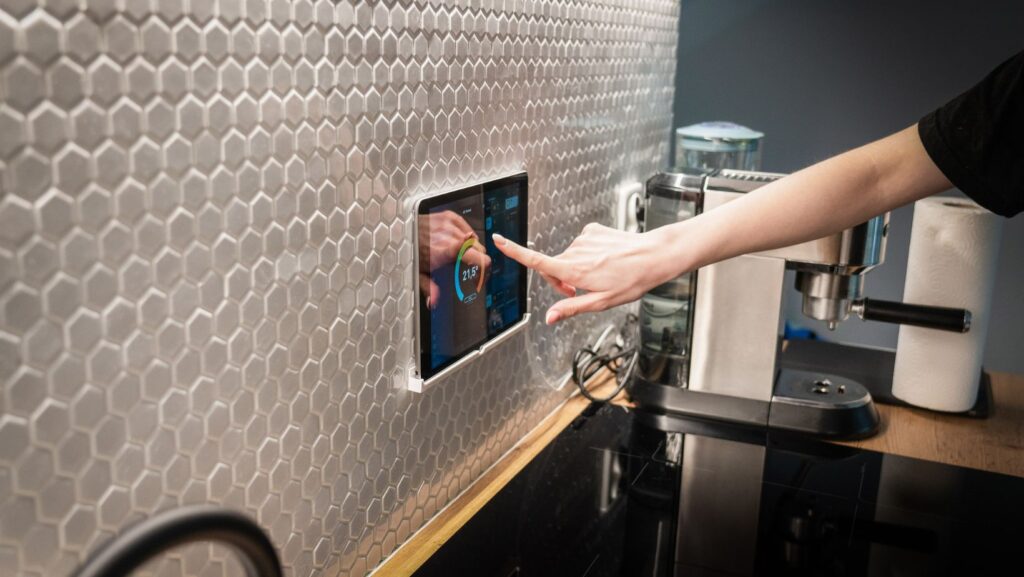Key Takeaways
- Revolutionizing Daily Life: Appliance technology is rapidly transforming everyday routines with innovative features that enhance convenience and efficiency, such as smart connectivity and automation.
- Smart Appliances Lead the Way: Devices like smart refrigerators and washing machines enable users to manage tasks and monitor energy usage remotely, offering significant time savings and operational ease.
- Energy Efficiency Matters: Modern appliances are designed to be more energy-efficient, contributing to both cost savings on utility bills and a reduced environmental footprint.
- Integration of IoT: The Internet of Things (IoT) enables seamless communication between appliances, allowing for better functionality and smarter home management.
- Voice Activation Enhances Usability: Voice-activated technology in appliances allows for hands-free operation, further simplifying household tasks and improving multitasking capabilities.
- Future Innovations on the Horizon: Advancements like AI-driven appliances promise to further enhance user experience, providing customized operations to meet individual preferences and needs.
In today’s fast-paced world, appliance technology is revolutionizing the way people live and work. From smart refrigerators that manage grocery lists to washing machines that can be controlled from a smartphone, these innovations are designed to simplify everyday tasks and enhance convenience. As technology progresses, appliances are becoming more intuitive, energy-efficient, and integrated into our smart homes.
Understanding the latest advancements in appliance technology is essential for anyone looking to upgrade their home. With features like voice control and energy monitoring, modern appliances not only save time but also contribute to a more sustainable lifestyle. This article delves into the fascinating developments in appliance technology, exploring how they can transform daily routines and improve overall quality of life.
Appliance Technology
 Appliance technology encompasses various innovations that enhance convenience, efficiency, and sustainability in homes. Smart appliances, equipped with advanced features, transform everyday tasks through automation and connectivity.
Appliance technology encompasses various innovations that enhance convenience, efficiency, and sustainability in homes. Smart appliances, equipped with advanced features, transform everyday tasks through automation and connectivity.
- Smart Refrigerators: Smart refrigerators monitor food freshness and send alerts for expiration dates. They can also suggest recipes based on ingredients available.
- Connected Washing Machines: Connected washing machines allow users to control settings remotely via smartphone apps. They provide notifications when cycles finish and recommend optimal wash cycles for different fabrics.
- Voice Control: Voice-activated appliances respond to commands for hands-free operation. Users can turn devices on or off or adjust settings using simple voice prompts.
- Energy Monitoring: Energy-efficient appliances track energy usage in real-time. They provide insights that help users reduce consumption and lower utility bills.
Integration of IoT in Appliance Technology
The Internet of Things (IoT) plays a crucial role in appliance technology by connecting devices for seamless interaction. Appliances communicate with each other and the user’s smartphone for enhanced functionality. For instance, a smart thermostat can adjust heating based on laundry cycles, optimizing energy use.
Benefits of Appliance Technology
- Time-Saving: Automation in appliances reduces the time needed for chores, allowing for more leisure time.
- Energy Efficiency: Many modern appliances come with energy ratings that help users choose environmentally friendly options while saving money.
- Enhanced Convenience: Connected features enable users to operate appliances from anywhere, providing unparalleled convenience in managing household tasks.
Innovations on the Horizon
 New developments in appliance technology promise to further reshape household experiences. Innovations like AI-driven appliances that learn user preferences and enhance performance are emerging. These advancements aim to provide even greater versatility and efficiency in daily tasks
New developments in appliance technology promise to further reshape household experiences. Innovations like AI-driven appliances that learn user preferences and enhance performance are emerging. These advancements aim to provide even greater versatility and efficiency in daily tasks
Appliance technology has undergone significant changes over the decades, leading to profound impacts on everyday life. The progression from basic mechanical devices to advanced smart appliances showcases this evolution.
Historical Milestones
- Early Appliances: The 19th century marked the advent of early appliances, like the first gas-powered stove and electric iron.
- Washing Machines: In the 1900s, the first mechanized washing machines emerged, drastically reducing manual labor.
- Refrigeration: The introduction of electric refrigerators in the 1920s revolutionized food preservation, making perishable goods more accessible.
- Microwave Oven: The 1940s brought the microwave oven, which changed cooking methods and significantly reduced meal preparation time.
- Programmable Thermostats: The 1980s saw the rise of programmable thermostats, introducing energy-saving features to HVAC systems.
- Smart Appliances: Today’s smart appliances, such as refrigerators that manage groceries, rely on IoT for enhanced connectivity and functionality.
- Voice Control: Integrating voice recognition systems allows users to operate devices hands-free, increasing convenience in cooking and cleaning.
- Energy Monitoring: Modern appliances often feature built-in energy monitoring, enabling users to track consumption and adjust usage patterns.
- AI Integration: AI-driven appliances learn user habits to optimize functionality, such as recommending customized washing cycles based on clothing types.
- App Connectivity: Many appliances now connect through apps, allowing remote operation and real-time notifications, further enhancing user control.
Types of Appliance Technology
Appliance technology consists of several categories, each designed to enhance efficiency and convenience in daily life. Understanding these types provides insight into how they contribute to modern living.
Major Categories
- Smart Appliances
Smart appliances incorporate connectivity features, enabling communication with other devices through the Internet of Things (IoT). Examples include smart thermostats that adjust heating and cooling based on user behavior, and smart ovens that preheat remotely.
- Energy-Efficient Appliances
Energy-efficient appliances focus on minimizing energy consumption while maximizing performance. These models, such as Energy Star-rated refrigerators and washers, significantly reduce electricity bills and environmental impact.
- Connected Appliances
Connected appliances allow users to control and monitor devices remotely via smartphone apps. Dishwasher and washing machines with built-in connectivity offer notifications on cycle completion and maintenance reminders.
- Voice-Activated Appliances
Voice-activated appliances utilize voice recognition technology for hands-free operation. Products like smart speakers and voice-controlled microwaves simplify tasks by responding to verbal commands for cooking and scheduling.
- Automated Appliances
Automated appliances perform tasks with minimal human intervention. Robotic vacuum cleaners, for instance, autonomously clean floors, adjusting to furniture and collecting debris without manual effort.
- Advanced Cooking Appliances
Advanced cooking appliances, including induction cooktops and multi-cookers, provide precise cooking techniques and versatile meal preparation options. They enhance culinary experiences through technology, making cooking more accessible and efficient.
Understanding these major categories illuminates the benefits and capabilities of current appliance technology, facilitating informed decisions for home upgrades and efficient living.
Smart Appliances
Smart appliances represent a significant advancement in appliance technology, focusing on connectivity and intelligent functions. They often employ sensors, AI, and machine learning to enhance user experience.
- Smart Refrigerators
Smart refrigerators monitor food freshness, suggest recipes, and maintain inventory through built-in cameras and sensors. They interact with users via smartphone apps, sending alerts about food expiration.
- Smart Washers and Dryers
Smart washers and dryers connect to home Wi-Fi networks, enabling users to start cycles remotely and receive notifications for completion. These appliances often feature AI, optimizing wash cycles based on user habits and fabric types.
- Smart Ovens
Smart ovens use algorithms to calibrate cooking times and temperatures, providing precise results. They may also offer recipe suggestions and preheat functions controlled via smartphone.
- Smart Thermostats
Smart thermostats learn user preferences, adjusting heating and cooling automatically. They can be programmed or managed remotely, leading to energy savings and comfort.
- Smart Home Hubs
Smart home hubs centralize control of various smart devices, allowing users to manage multiple appliances from a single interface. They support voice commands and automation scenarios for efficiency.
Smart appliances increasingly redefine convenience in homes, helping users save time, reduce energy consumption, and keep tasks organized. Their continuous evolution points to a future where household management integrates seamlessly with daily life.
Benefits of Appliance Technology
Appliance technology offers significant advantages that improve modern living. The enhancements in energy efficiency and connectivity greatly contribute to a more convenient and sustainable lifestyle.
Energy Efficiency
Energy-efficient appliances reduce power consumption, leading to lower utility bills. These models incorporate advanced technologies such as energy monitoring and smart sensors that optimize energy usage based on real-time data. According to the U.S. Department of Energy, using ENERGY STAR® qualified appliances can save consumers up to 30% on energy costs annually. Additionally, energy-efficient appliances often have a smaller carbon footprint, contributing to environmental sustainability. Smart refrigerators, for example, adjust their cooling levels based on contents and external temperature, enhancing efficiency without sacrificing food preservation.
Convenience and Connectivity
Connected appliances bring unparalleled convenience to households. Many smart appliances sync with smartphones, allowing users to control them remotely via dedicated apps. This functionality enables users to start a washing machine or preheat an oven, all while away from home. Voice-activated technology adds another layer of ease, enabling hands-free operation for multitasking. Appliances equipped with sensors can send notifications, such as reminders to replenish supplies or alerts when cycles complete, simplifying daily routines. This connectivity enhances home automation, making tasks more manageable and efficient.
Challenges in Appliance Technology
Appliance technology faces several significant challenges that impact its development and adoption. These challenges include technological limitations and intense market competition, both of which affect innovation and user experience.
Technological Limitations
Technological limitations pose hurdles for the advancement of appliance technology. Many smart appliances rely on robust internet connectivity for optimal functionality. Issues such as network outages or inadequate bandwidth can disrupt appliance performance and diminish user satisfaction. Compatibility between various smart home systems can also create challenges. For instance, appliances from different manufacturers may not seamlessly integrate, leading to fragmented user experiences. Additionally, security vulnerabilities in connected appliances raise concerns about data privacy and theft. As appliances collect data, ensuring robust cybersecurity measures becomes critical to protect users’ personal information.
Market Competition
Market competition significantly influences the pace and direction of appliance technology. With numerous brands vying for consumer attention, companies often prioritize rapid innovation and feature-packed designs over long-term reliability. This competition can lead to an oversaturation of products, making it difficult for consumers to discern quality and functionality. Price pressures may also compel manufacturers to cut corners, risking the durability of appliances. Furthermore, rapid technological changes mean that newly launched appliances can quickly become outdated, compelling consumers to frequently upgrade. This cycle places financial strain on consumers and complicates decision-making processes when choosing appliances.
Evolution of Appliance Technology
Appliance technology continues to revolutionize how people manage their homes. With innovations that prioritize convenience energy efficiency and automation it’s clear that these advancements are shaping a more sustainable future. As smart appliances become increasingly integrated into daily life they not only save time but also enhance user experiences through intelligent features.
While challenges like technological limitations and market competition exist the potential for further improvements remains vast. Embracing these technologies can lead to smarter homes that adapt to individual needs. As this field evolves staying informed will empower consumers to make choices that enhance their lifestyles and contribute to a greener planet.


